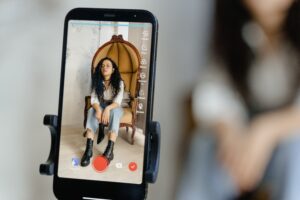
The rise of social media has revolutionized the way people communicate with one another and the kinds of information that are available to the population. Communication is faster between people and there is a sea of information available. Since the pandemic started in 2020, Tiktok has made its way to being one of the most used apps for adolescents and Gen Z.
Various kinds of information, ranging from skincare to politics, can be found in the form of short videos made by different content creators on the app. TikTok has become a platform where people are comfortable enough to share personal anecdotes, including mental health struggles. There is a steady stream of information on the app that dictates what people should be doing for their mental health, signs of bad mental health and traits of specific mental disorders. Although the app can positively affect many through finding solidarity and support in others’ experiences, there is a downside. Advising people to self diagnose and treat themselves poses a significant threat.
Psychological diagnostics are incredibly complicated and many mental illnesses masquerade as or can match the symptoms of others. Furthermore, it’s easy to confuse a medical illness as a psychiatric issue if you’re untrained and uninformed. TikTok content creators, for the most part, are not trained psychological diagnosticians.
Mental health treatment needs are individualistic. This means that what one person may be experiencing may not translate at the same magnitude for someone else. The volume and variety of information that people are being exposed to causes information to be used on too broad a scale when the process is much more intricate than that. Dr. John Walkup, the chief of child and adolescent psychiatry at Northwestern University Feinberg School of Medicine, says that TikTok “encourages weakness and self doubt to impose diagnoses that may well not be accurate.”
Professionals in the healthcare field go to school for years in order to provide patients with proper support and diagnoses. Simplifying this kind of education through misinformation that only scratches the surface of the true nature of mental disorders is misleading and might end up worsening the problem. The things one sees online should be consumed with caution and what may apply to one person may not apply to another. Individuals should try their best to seek help from reliable sources and professionals instead of content creators without training or experience.







